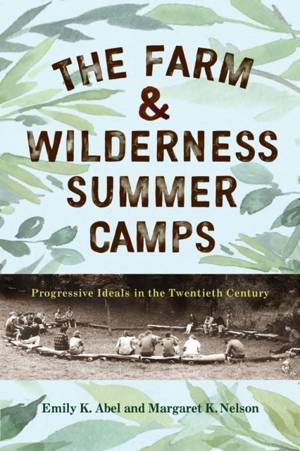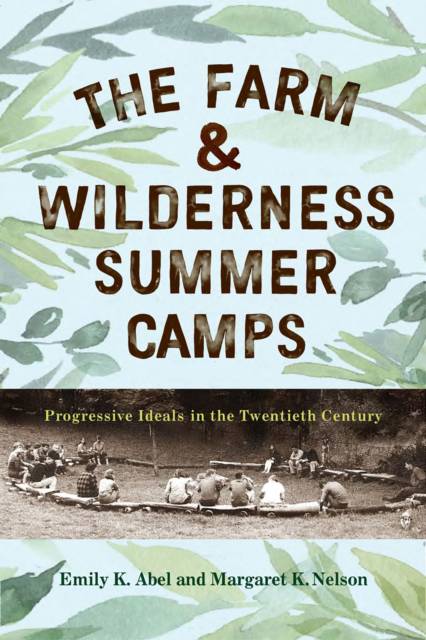
Bedankt voor het vertrouwen het afgelopen jaar! Om jou te bedanken bieden we GRATIS verzending (in België) aan op alles gedurende de hele maand januari.
- Afhalen na 1 uur in een winkel met voorraad
- In januari gratis thuislevering in België
- Ruim aanbod met 7 miljoen producten
Bedankt voor het vertrouwen het afgelopen jaar! Om jou te bedanken bieden we GRATIS verzending (in België) aan op alles gedurende de hele maand januari.
- Afhalen na 1 uur in een winkel met voorraad
- In januari gratis thuislevering in België
- Ruim aanbod met 7 miljoen producten
Zoeken
The Farm & Wilderness Summer Camps
Progressive Ideals in the Twentieth Century
Emily K Abel, Margaret K Nelson
Hardcover | Engels
€ 174,95
+ 349 punten
Uitvoering
Omschrijving
Although summer camps profoundly impact children, they have received little attention from scholars. The well-known Farm & Wilderness (F&W) camps, founded in 1939 by Ken and Susan Webb, resembled most other private camps of the same period in many ways, but F&W also had some distinctive features. Campers and staff took pride in the special ruggedness of the surrounding environment, and delighted in the exceptional rigor of the camping trips and the work projects. Importantly, the Farm & Wilderness camps were some of the first private camps to become racially integrated.The Farm & Wilderness Summer Camps: Progressive Ideals in the Twentieth Century traces these camps, both unique and emblematic of American youth culture of the twentieth century, from their establishment in the late 1930s to the end of the twentieth century. Emily K. Abel and Margaret K. Nelson explore how ideals considered progressive in the 1940s and 1950s had to be reconfigured by the camps to respond to shifts in culture and society as well as to new understandings of race and ethnicity, social class, gender, and sexual identity. To illustrate this change, the authors draw on over forty interviews with former campers, archival materials, and their own memories. This book tells a story of progressive ideals, crises of leadership, childhood challenges, and social adaptation in the quintessential American summer camp.
Specificaties
Betrokkenen
- Auteur(s):
- Uitgeverij:
Inhoud
- Aantal bladzijden:
- 172
- Taal:
- Engels
Eigenschappen
- Productcode (EAN):
- 9781978836648
- Verschijningsdatum:
- 15/12/2023
- Uitvoering:
- Hardcover
- Formaat:
- Genaaid
- Afmetingen:
- 152 mm x 229 mm
- Gewicht:
- 58 g

Alleen bij Standaard Boekhandel
+ 349 punten op je klantenkaart van Standaard Boekhandel
Beoordelingen
We publiceren alleen reviews die voldoen aan de voorwaarden voor reviews. Bekijk onze voorwaarden voor reviews.









